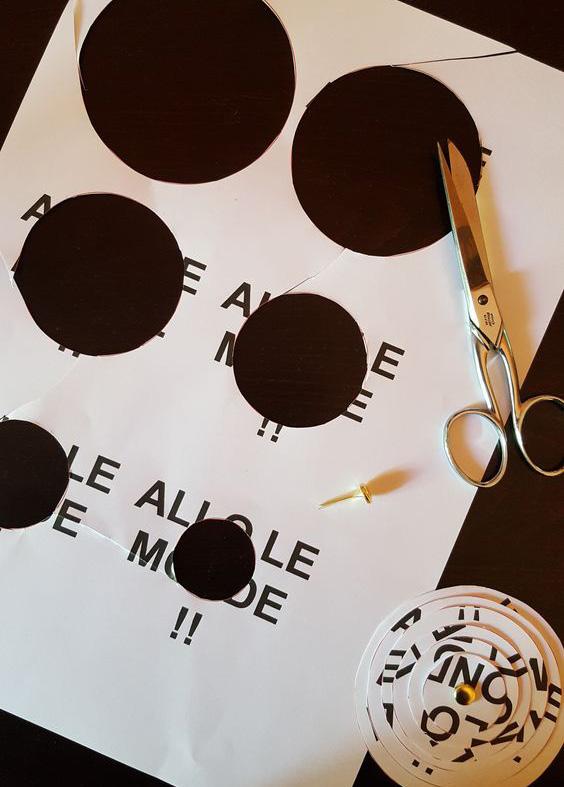
4 minute read
Pop-up Elements
My orginial plan was to add 3D pop-up elements in each spread. Due to time conflict, I added popup elements in 6 spreads only.
To get inspired, I browsed pop-up tutorials through Youtube and Pinterest. I excitedly found some perfect popups to use for my book. For instance, I saw the image from Pinterest as shown on the right, and I made a connection with world hunger chapter.
Advertisement
SOURCE
https://www.pinterest.com/pin/790100328368563471/
This popup is called “Waterfall Card” which I found on YouTube. I’d say this was my favorite popup to make out of all other popup elements because it is so simple yet fun.
I placed it into the “Food Timeline” chapter because I thought it would fit the theme of “going on the journey of the time” when you pull the tab. I had tried to use food as a theme for a waterfall card, and I’m glad that an “ice cream cone” with round shapes was doable. I chose “The Oops Scoops” as the title since it is about food that was discovered by mistake.




When I was wondering how to achieve four categories through a popup element, I decided to use four folding paper method to cover the inside text.
To reflect the ancient feelings, I used Photoshop for the cloud effect just like as old paper texture as shown in the front of the popup.
Folded Popup
J u d a i s m
B u d d h i s m C h r i s t i a n i t y
I s l a m
Front of the Popup
The Jewish food dietary laws explain the rules for choosing kosher animal products, including the prohibition of what is considered “unclean” animals such as pigs, rabbits, shellfish, reptiles, and the mixing of meat and dairy. Permitted food is mammals with split hooves, fish with fins, eggs, and milk from kosher animals. According to Jewish law, permitted animals must go through the slaughter process called schechita, in which all blood must be drained out from the meat before it is eaten. Some Jews fast on the holiest day of the year in Judaism, Yom Kippur, known as the Day of Atonement. They (except children under nine years old) fast for 25 hours, abstaining from food and beverage.
Christianity does not have any specific food dietary guidelines because many modern Christians believe that Jesus states all food is clean in Mark 7:17–19. According to the New Testament, the apostle Peter’s vision of the sheet lowered from heaven and containing all types of animals that the divine voice pronounced clean and fit for food provided the church with a mandate to abandon the food regulations. Some several Christian denominations practice fasting, for instance, the 40-day “Great Lent” fasting begins on Ash Wednesday until 9 days before Easter day. Some abstain only meat while millions of Christians and Catholics give up targeted sources of pleasure or entertainment.
One of Buddhism’s five ethical teachings prohibits taking away life from any person or animal, so many Buddhists decide not to slaughter and consume animals as interpretation. They usually follow a lacto-vegetarian diet because all three religions Hinduism, Buddhism, and Jainism have a key concept which is called ahimsa, which means “no doing harm” to respect all living things. Like Islam, Buddhism is prohibiting drinking alcohol since it clouds the mind and can lead them to break other religious rules. Some Buddhists abstain from garlic, onion, chives, leeks, and shallots as these strong-smelling vegetables are thought to increase sexual desire and anger when eaten cooked. Some are expected to fast from noon until the dawn of the following day as a way to self-control.

Muslims do not drink or eat intoxicated alcohol, wine, swine, blood, and dead flesh because they believe that each one has a disadvantage effect on the body. However, if a Muslim finds himself or herself desperately starving, eating swine is permitted at this time. Like Judaism, some Muslims only eat halal meat. Halal meat is when sacrificing animals with split hooves while saying Bismillah, and using a specific slaughter way to end animals suffer quicker. During the Islamic month Ramadan, Muslims (older people, children before puberty, menstruating, pregnant, breastfeeding, and people with the illness are excused) abstain food and drink from sunrise to sunset to purify spiritually and faith.
Back of the Popup
C h r i s t i a n i t y
glue area
I s l a m J u d a i s m
B u d d h i s m




